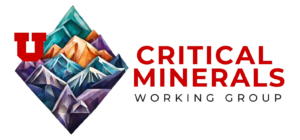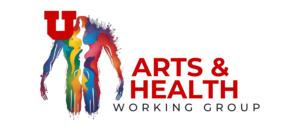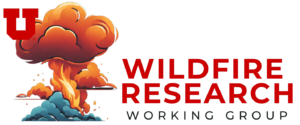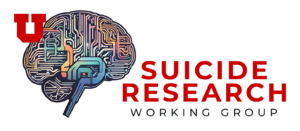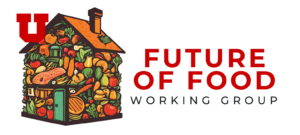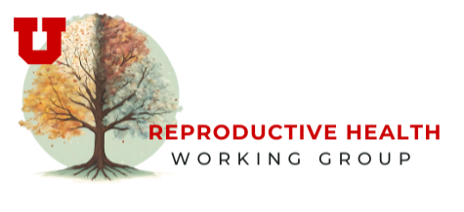wORKING GROUPS
Working groups are collaborative teams of research experts from various fields driven by a mutual passion for exploration and discovery. Through interdisciplinary collaboration and rigorous investigation, they strive to push the boundaries of knowledge - fostering an environment where society thrives, and breakthroughs happen every day. Guided by peer-to-peer support, institutional resources, and a relentless pursuit of excellence, research working groups serve as beacon of innovation, inspiring both its members and the broader research community to reach new heights in understanding and shaping the world.
Research Working Groups
A list of active and current Research Working Groups can be found below. To sign up for a working group contact list, please complete this form. To learn more about a particular Research Working Group's goals, membership, etc. please contact the individual listed for each working group.
Critical Minerals
The Critical Minerals Working Group focuses on critical minerals that are essential to societal needs such as lithium, indium, tellurium, gallium, and platinum. Demand for critical minerals such as rare earth elements has increased in recent years with the spread of high-tech devices for personal and commercial use such as batteries for electric vehicles, wind turbines, solar panels, and electronics such as smartphones and tablets. Utah is home to significant critical mineral resources, thus, the working group is positioned to advance research in identification, extraction, and processing as well as engage pressing societal, ethical, and legal issues.
Arts and Health Innovation Lab
As a home to world class creative work and cutting-edge health science, the University of Utah conducts some of the most impactful arts & health research in the world. The Arts and Health Innovation Lab is a catalyst of interdisciplinary research, teaching, clinical care, and community engagement at the intersection of the arts and health. Our members study how the arts support and produce well-being, and put that knowledge to work in hospitals, clinics, community centers, schools, workplaces, and senior care facilities. We define "health" as not just the absence of disease, but as complete physical, mental, and social well-being. Information on current areas-of-focus can be found HERE. All faculty interested in pursuing research and/or creative scholarship focused on the intersections of arts and health are invited to join the Lab. Click below for projects currently supported by the lab or to learn more about getting involved!
Wildfire
The Wildfire Research Working Group is a cross disciplinary group of research faculty exploring wildfire impacts, forecasting, and solutions. Wildfire prevention and management is one of the pressing issues of the West, yet there is a pressing need for innovative and impactful approaches. University of Utah researchers are engaged in a number of projects to develop new technologies and policy mechanisms to advance resilience, prevention, and forecasting ability of wildfires. The Wildfire Research Working Group formed out of a collaboration between the Wilkes Center for Climate Science & Policy and the VPR Office.
Suicide Research
The Suicide Research Working group is focused on preventing suicide. Suicide is a significant public health issue that cuts across multiple research domains. It is also a growing problem as suicide rates increased 36% from 2000 – 2021. Given the breadth and urgency of the problem, the working group will bring together researchers from across the university to elucidate risk factors, identify mitigation strategies, and develop effective interventions. The University of Utah is home to some of the most rigorous and comprehensive suicide research databases, including global datasets that elucidate genetic, behavioral, societal, and individual risk factors.
Future of Food
The Future of Food Working Group is focused on the pivotal role of food security for individuals, families, and communities. Ensuring that all individuals have access to sufficient food is a significant societal goal but one that requires new frameworks, programs, and research breakthroughs. Faculty across the university are interested in food security and developing interdisciplinary programs to solve this complex issue. To that end, the working group is examining multiple food issues including food as medicine, nutrition, obesity, dietary assessments, policies linked to food sovereignty, and health.
Reproductive Health
The Reproductive Health Working Group will play a pivotal role in advancing the comprehensive well-being of our community by bringing together a diverse group of dedicated healthcare providers, researchers, educators, and administrators committed to collaborative research in this critical field.

